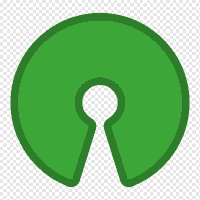
Para
- 0 ratings

Flexible and modular backend framework/server for object persistence, API development and authentication.
Self-host this app for $0.99/mo only!

Para is a scalable, multitenant backend server/framework for object persistence and retrieval. It helps you build and prototype applications faster by taking care of backend operations. It can be a part of your JVM-based application or it can be deployed as standalone, multitenant API server with multiple applications and clients connecting to it.
The name "pára" means "steam" in Bulgarian. And just like steam is used to power stuff, you can use Para to power your mobile or web application backend.
See how Para compares to other open source backend frameworks.
This project is fully funded and supported by Erudika - an independent, bootstrapped company.
DAO natively)
+----------------------------------------------------------+
| ____ ___ _ ____ ___ _ |
| / __ \/ __` / ___/ __` / |
| / /_/ / /_/ / / / /_/ / |
| / .___/\__,_/_/ \__,_/ +-------------+
| /_/ | Persistence |
+-------------------+ +-----------------+ +-------------+
| REST API | | Search |---| Cache |
+---------+---------+--+--------+--------+---+------+------+
| | |
+---------+---------+ +--------+--------+ +------+------+
| Signed Requests | | Search Index | | Data Store |
| and JWT Tokens | | (Any) | | (Any) |
+----+---------^----+ +-----------------+ +-------------+
| |
+----v---------+-------------------------------------------+
| Clients: JavaScript, PHP, Java, C#, Android, iOS, et al. |
+----------------------------------------------------------+
We offer hosting and premium support at paraio.com where you can try Para online with a free developer account. Browse and manage your users and objects, do backups and edit permissions with a few clicks in the web console. By upgrading to a premium account you will be able to scale you projects up and down in seconds and manage multiple apps.
application.conf file in the same directory as the JAR package.java -jar -Dconfig.file=./application.conf para-*.jarnpm install -g para-cli# run setup and set endpoint to either 'http://localhost:8080' or 'https://paraio.com'
# the keys for the root app are inside application.conf
$ para-cli setup
$ para-cli new-app "myapp" --name "My App"Tagged Docker images for Para are located at erudikaltd/para on Docker Hub.
It's highly recommended that you pull only release images like :1.45.1 or :latest_stable
because the :latest tag can be broken or unstable.
First, create an application.conf file and a data folder and start the Para container:
$ touch application.conf && mkdir data
$ docker run -ti -p 8080:8080 --rm -v $(pwd)/data:/para/data \
-v $(pwd)/application.conf:/para/application.conf \
-e JAVA_OPTS="-Dconfig.file=/para/application.conf" erudikaltd/para:latest_stableEnvironment variables
JAVA_OPTS - Java system properties, e.g. -Dpara.port=8000
BOOT_SLEEP - Startup delay, in seconds
Plugins
To use plugins, create a new Dockerfile-plugins which does a multi-stage build like so:
# change X.Y.Z to the version you want to use
FROM erudikaltd/para:v1.XY.Z-base AS base
FROM erudikaltd/para-search-lucene:1.XY.Z AS search
FROM erudikaltd/para-dao-mongodb:1.XY.Z AS dao
FROM base AS final
COPY --from=search /para/lib/*.jar /para/lib
COPY --from=dao /para/lib/*.jar /para/libThen simply run $ docker build -f Dockerfile-plugins -t para-mongo .
Para can be compiled with JDK 8+:
To compile it you'll need Maven. Once you have it, just clone and build:
$ git clone https://github.com/erudika/para.git && cd para
$ mvn install -DskipTests=true$ mvn package and it will be in ./para-jar/target/para-x.y.z-SNAPSHOT.jar.
Two JAR files will be generated in total - the fat one is a bit bigger in size.
To build the base package without plugins (excludes para-dao-sql and para-search-lucene), run:
$ cd para-jar && mvn -Pbase packageTo run a local instance of Para for development, use:
$ mvn -Dconfig.file=./application.conf spring-boot:runYou can run Para as a standalone server by downloading the executable JAR and then:
$ java -jar para-X.Y.Z.jarThe you can browse your objects through the Para Web Console console.paraio.org. Simply change the API endpoint to be your local server and connect your access keys. The admin interface is client-side only and your secret key is never sent over the the network. Instead, a JWT access token is generated locally and sent to the server on each request.
Alternatively, you can build a WAR file and deploy it to your favorite servlet container:
$ cd para-war && mvn packageYou can also integrate Para with your project by adding it as a dependency. Para is hosted on Maven Central.
Here's the Maven snippet to include in your pom.xml:
<dependency>
<groupId>com.erudika</groupId>
<artifactId>para-server</artifactId>
<version>{see_green_version_badge_above}</version>
</dependency>For building lightweight client-only applications connecting to Para, include only the client module:
<dependency>
<groupId>com.erudika</groupId>
<artifactId>para-client</artifactId>
<version>{see_green_version_badge_above}</version>
</dependency>$ npm install -g para-cliUse these client libraries to quickly integrate Para into your project:
Use these DAO implementations to connect to different databases:
AWSDynamoDAO (included in para-server)H2DAO is the default DAO and it's part of the SQL plugin (packaged with the JAR file)The Search interface is implemented by:
The Cache interface is implemented by:
para-server)The Queue interface is implemented by:
AWSQueue classLocalQueue for single-host deployments and local development2.0 - migration to Quarkus, Java 13+ only, native imagepara tagpara tag on Stack Overflowgit checkout -b my-new-feature)git commit -am 'Added a new feature')git push origin my-new-feature)Please try to respect the code style of this project. To check your code, run it through the style checker:
mvn validateFor more information see CONTRIBUTING.md
Please login to review this project.
No reviews for this project yet.
Fast and scalable open source API Gateway. Out of the box, …
Open source High-Performance API Gateway.
A free, fast and beautiful API request builder.
Comments (0)
Please login to join the discussion on this project.